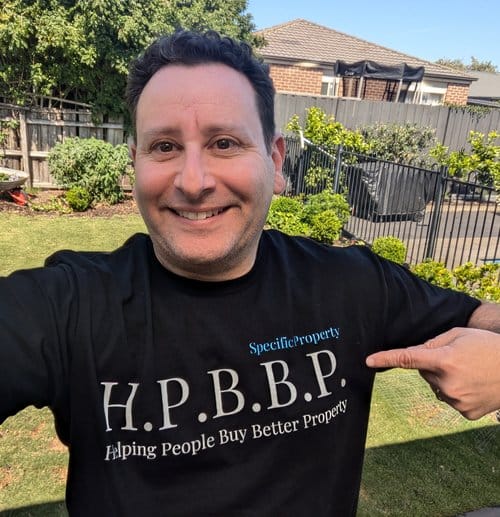The sheer volume of listings, the variability in pricing, and the time commitment required to properly assess each option can cause anxiety, fatigue, and costly mistakes.
Buyer’s advocates make the search for an ideal property more efficient, focused, and less stressful.
According to Michael Taylor of Specific Property, a buyer’s advocate acts as a filter and guide, dramatically reducing the workload for the buyer.
From Overwhelmed to Organised
Taylor says the modern property buyer is often stretched thin trying to manage work, family and finances, all while attempting to decode a confusing property market.
"A lot of buyers just don’t have the capacity to do this process thoroughly."
Many buyers don’t realise the hours involved in qualifying properties, liaising with agents, attending inspections and cross-checking legal and planning documents.
"We eliminate the unnecessary ones before we go to inspection. So, we're not wasting their time with things that don't match."
Building an Effective Search Strategy
Advocates don’t just save time — they make the time spent more productive by refining the buyer’s brief early on.
"We start with a very methodical approach to try and figure out exactly what it is that we’re looking for. And then the research kicks in," Michael said.
Taylor highlights that this process removes unnecessary stress and second-guessing.
Instead of chasing properties that are a poor match or outside budget, the buyer and advocate focus on realistic, high-quality options.
"We’re trying to go for properties that are what I call the 80 to 90 per cent fit. You’re not going to get a 100 per cent fit unless you build it yourself."
Managing Buyer Expectations
A significant source of stress during the property search comes from misaligned expectations.
Taylor notes that many buyers come in with ideas shaped by outdated price points, renovation TV shows or online listings that don’t reflect reality.
"People will turn up to inspections, and they don't even know what they're inspecting. And they haven’t looked at the contract. They haven’t looked at the floor plan. They haven’t done any research."
A buyer’s advocate takes that burden off the client, helping them make informed decisions without rushing or reacting impulsively.
"We put all the research and all the data in front of them and say, 'This is the best option that we have available to us right now.'"
This structured approach reduces buyer fatigue and prevents decision paralysis.
Cutting Through the Noise
With thousands of properties listed across Australia each week, particularly in larger cities like Melbourne, Sydney and Brisbane, the search process can become overwhelming. Buyer’s advocates cut through that clutter.
"We might look at 100 properties, but they’re only going to see the five best ones that we’ve shortlisted."
According to Domain and CoreLogic data, properties in competitive suburbs often sell within 30 days of listing, and in some markets, as little as 15 days. This places pressure on buyers to act quickly.
Taylor says that a buyer’s advocate can quickly narrow in on top options without skipping due diligence.
"We’ve already looked at the overlays. We’ve already spoken to the agent. We’ve already seen the sales history. We already know what’s wrong with it."
Advocacy Beyond the Search
The stress of buying doesn’t end once the right home is found. It often intensifies during negotiation, auction preparation and contract review. Taylor says advocates help buyers stay focused and calm when emotions peak.
"They’re not panicking, they’re not trying to make a decision on the run. They’ve got all the facts. They’ve got someone that they can rely on."
"The reason we get hired is because people want confidence. They want reassurance that they're making the right decision, and they want to have their time protected."
Final Thoughts: Clarity and Confidence
At its core, working with a buyer’s advocate isn’t just about finding property — it’s about avoiding the common traps that drain time, energy, and resources.
"It’s a full-time job, and we do it every day. We know the traps, and we know how to avoid them. That’s what clients really value."
"If we can save you 50 hours and stop you from making a $50,000 mistake, that’s a pretty good investment."




